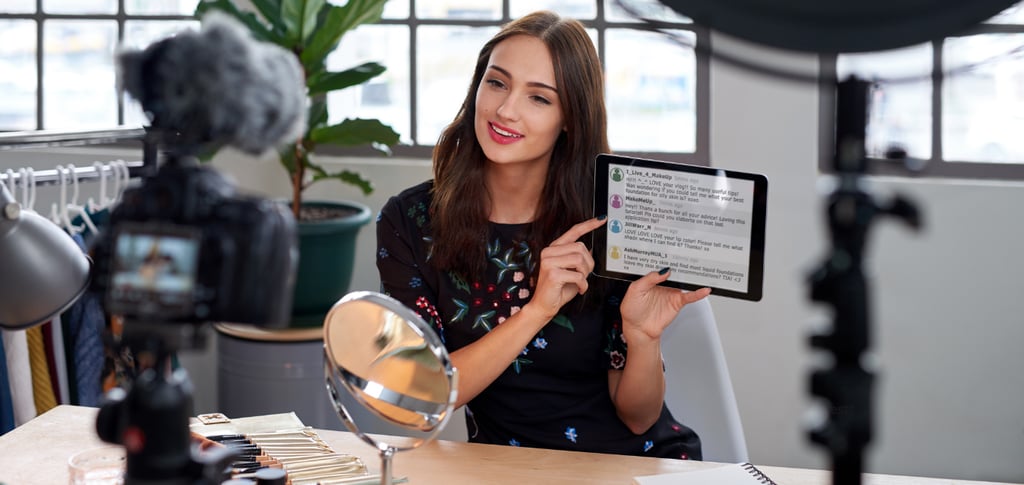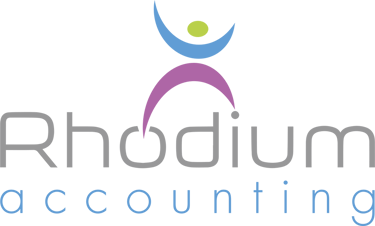Social Media Influencers - Tax Implications for your Income.
BOOKKEEPING


You may have started social media influencing as a hobby, uploading videos and creating content on digital platform such as YouTube, Instagram and TikTok because you enjoyed it but now you are making money from it. Do you need pay tax on that income? This page looks at some of the tax issues you need to be aware of and the steps to take so that you get your tax position right.
Are you Trading or this is a hobby?
If you are using social media to earn money, or earn other things such as “free” products or “free” meals in a restaurant, then you need to consider if what you are doing is a hobby or if you are actually running a business and there can be considered to be trading.
It is possible you started your social media influencing work as a hobby with no intention of it ever becoming a business but then it has grown much more than you ever imagined and you are making quite a lot of money from it, it possible it can now be considered that you are trading.
At other times it is not so clear cut and the line between a calling your social media influencing work a hobby and a business is blurred. If what you do Is not regular and organised and you don’t have a strategy to make money from your social media business and you are not making much from it, then it is possibly more a hobby.
How do you decide if you are trading or not?
Simple Tests to Help You Decide if you are trading.
If you started your social media influencing work with the sole intention of making a profit or earning enough to make a living on it, then chances are you are running a business, in which case you are trading. If this is the case then you need to register for self-assessment and complete a self-assessment tax return to declare your trading income and expenses like any other self employed individual. This is the case even if it doesn’t really feel like work and even if you only do it part time.
The second test is the use of the £1,000 trading allowance (you can read more on the trading allowance below) depending on what you are earning both in money and payments in kind. We have written a detailed guidance on trading allowance here, but in summary if your income is more than £1,000 trading allowance from all your self-employments and miscellaneous income then you will need to report it to HMRC and pay tax on it.
You will also need to pay any tax and National Insurance due and keep business records. Also depending on how much your gross income is (if it is greater than £50,000 for the 2025/26 tax year )you may be mandated to file your business income under Making Tax for Income Tax Digital Rules and you can read more on that here.
Simple Tests to Help you decide if you are not trading.
If you started out your social media influencing work just as a hobby, you never had any intention of making a living from it, and you are making little or no profit from it, then you may not be trading. This will be even more true if the profit you are making is less than the £1,000 trading allowance we discussed above.
If the income is above the £1,000 trading allowance threshold, then any profit you make will still be taxable but treated as miscellaneous income instead of self – employment income and will need to be declared to HMRC. It is important to bear in mind that your income will include both:
Monetary payments
Payments in kind
The 2 Types of Income from Social Media Marketing:
Payments in Kind:
If you have a successful social media presence, you might receive gifts or payments in kind for promotion, as well as or instead of cash. These can be anything, examples might include new mobile phone, a new device to test and endorse, a pair of shoes to review or a meal at a restaurant to promote.
If it is a payment in kind or gift in exchange for promotion, it’s probably a taxable amount and you should include the value in your figures when you are working out your total income. This could be the case even if you have established this is a hobby and the value to include will be amount you could sell the item or service for.
Monetary Rewards:
There are many different ways to generate income on social media. Some of the common ones are:
Donation payments , fee or sponsorship to endorse a product or service (sometimes also know as brand agreements)
Money from a digital platform such as YouTube, based on the numbers of views your content gets; how many followers you have or from adverts that your followers have viewed. One example of this is the TikTok creator fund.
Money made from affiliate links: Content creators make money by getting people to click on links to products that they post and if they buy the products, get a commission from the sale.
You may also get money via digital platforms from people signing up for a subscription to view content that you make for example posting videos on Patreon.
Remember you need to include all the sources of income (i.e. both payments in kind and monetary rewards ) you receive from different digital platforms when considering if you can use the £1,000 trading allowance.
One other important point to stress is that if you receive income which has had expenses or fees taken from it (such as commissions or platform charges) before it is paid to you, it is the amount before the deduction of the fee expenses that is the total amount of income earned – known as the gross income, not the net amount you received.
Expenses
Chances are you will incur expenses as part of your influencer work whether you are doing it as a hobby or doing it seriously as a business.
Some common expenses that social media influencers incur may include IT equipment, broad band and internet costs, mobile phone bills, travel expenses and non- gifted products and services that are reviewed, costumes, rent of studio space for filming, etc.
If your expenses are not very great but your income is £1,000 or more, then you might use partial relief trading allowance against your income instead of deducting your actual business expenses. Partial relief is when you deduct the full trading allowance from your gross income if it over £1,000.
So for example if your total gross trading income (before deducting any expenses) in a tax year is more than £1,000, let’s assume your total income from your social media influencing work is £1,750 and your actual expense on a new camera was £750, you could choose to deduct your actual cost of the camera and arrive at £1,000 as your taxable profit or you could choose to use the £1,000 trading allowance and arrive at £750 as your taxable profit. Using the second method is what is known as partial relief. You can read more on that here
If your expenses are more than the income you earn from your influencers role then you will make a loss. Whether of not you will be able to claim any tax relief for losses will depend on whether you are trading or making miscellaneous income.
Trading Allowance Overview.
The trading allowance is available to those with trading and or miscellaneous income. It is also sometimes known as the trading and miscellaneous or hobby allowance.
It is a tax-free allowance for casual and miscellaneous income of up to £1,000 per tax year. The allowance can be used against any trading, casual or miscellaneous income and means that you do not pay tax or National insurance on the income that is covered by the allowance.
You can read more on it here
Keeping records
It is important to keep good records of what you have earned and how you have earned it, and may include details of any agreements on endorsements, brand collaborations and payments in kind.
You should also keep good records of all the things you spend money on, so that you can offset the expense against the income to reduce the taxable amount.
There is more guidance on how to keep good records on our business record keeping page.
More Information
In summary, as a social media influencer, if you are making some income, it is important that you take steps, if you haven’t already to determine whether you are trading or your social media work is just a hobby. Either way if you are making an income in excess of your outgoings or expenses you need to consider how you are going to declare this to HMRC.
If you are unsure where you stand, we can help. Simply complete our contact form below and we will be in touch within 24 hours.
You can also read our self-employment guide here, if you are new to the whole concept of self-employment, what is means, how to go about registering as self-employed and how to pay any tax due.
Blog content is for information purposes only and over time may become outdated as the tax landscape is constantly changing, although we do strive to keep it current and up to date. It is written to help you understand your taxes and is not to be relied upon as professional accounting, tax and legal advice. For additional help please contact our team, or a professional adviser.
